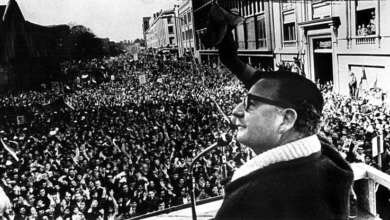Mexico is suffering though its worst drought in decades. Mexico City, the mega-metropolitan area with a population of 20 million, is witnessing the worst drought in 60 years. The rest of the country is experiencing similar record-breaking conditions.
 |
The drought has killed more than 1,000 cattle. More than 3 million small farms will potentially lose 20 million tons of crops because of the lack of water. More than 1 million acres of pasture in over 15 states have been harmed. These losses already amount to almost 1.5 million tons of food, mostly corn, valued at over $1 billion.
The government has cut water services by 30 percent and imposed large fines for hosing down sidewalks and watering lawns during daytime hours.
The most needy and impoverished citizens are the most heavily impacted by the water emergency. Upper-class areas have much more access to water than those in poorer “barrios.” For example, the wealthy who live in the western hills of Chapultepec and Lomas in Mexico City receive 1,000 liters per day while working-class neighborhoods, such as Iztapalapa to the east, receive only 200.
Ruling-class politicians have proposed false “solutions” to the water crisis that generally focus on privatization and reducing subsidies. Mexico City Mayor Marcelo Ebrard, representing these voices, is pushing for privatization of water services in Mexico City. Such action has already been taken in other Mexico cities like Cancun, Saltillo and Aguascalientes, where the switch has led to a steep rise in the cost of water services. Other politicians have proposed the elimination of water subsidies, raising water prices for all but disproportionately affecting the poor and working-class neighborhoods. They falsely claim that raising prices would encourage water conservation and punish those who waste it.
Privatization and increased fees will only increase the plight of impoverished workers and farmers in Mexico while benefiting the capitalist owners.
Mexican workers and peasants have begun to take actions to ameliorate the affects of the drought and protest the callous indifference of the capitalist rulers. Peasants have shut down streets and hijacked trucks carrying the vital substance. During the week of Aug. 16 to 23, housewives from Iztapalapa lined up dozens of empty plastic pails in front of the National Palace to protest the lack of water services to the area.
Mexico is a country rich in resources, yet poverty is widespread. Neoliberal policies, exemplified by the 1994 North America Free Trade Act, imposed on Mexico by the United States, have destroyed much of the food production and development of that country. The result has been increasing poverty and inequity. The Mexican ruling class has been complicit in allowing the policies to be implemented, trading the needs of the Mexican people for their own profits. Now, these same forces are proposing measures that would only expand the impoverishment of the Mexican people, disguising the measures as solutions.
As reported by the Los Angeles Times, Jorge Legorreta, a professor at the Autonomous Metropolitan University in Mexico City, noted that the issue is not really one of scarcity but of management. Any real solution to the crisis would involve a highly planned distribution of water to all residents, not raising fees, handing profits to the corporations or cutting off the neediest.






